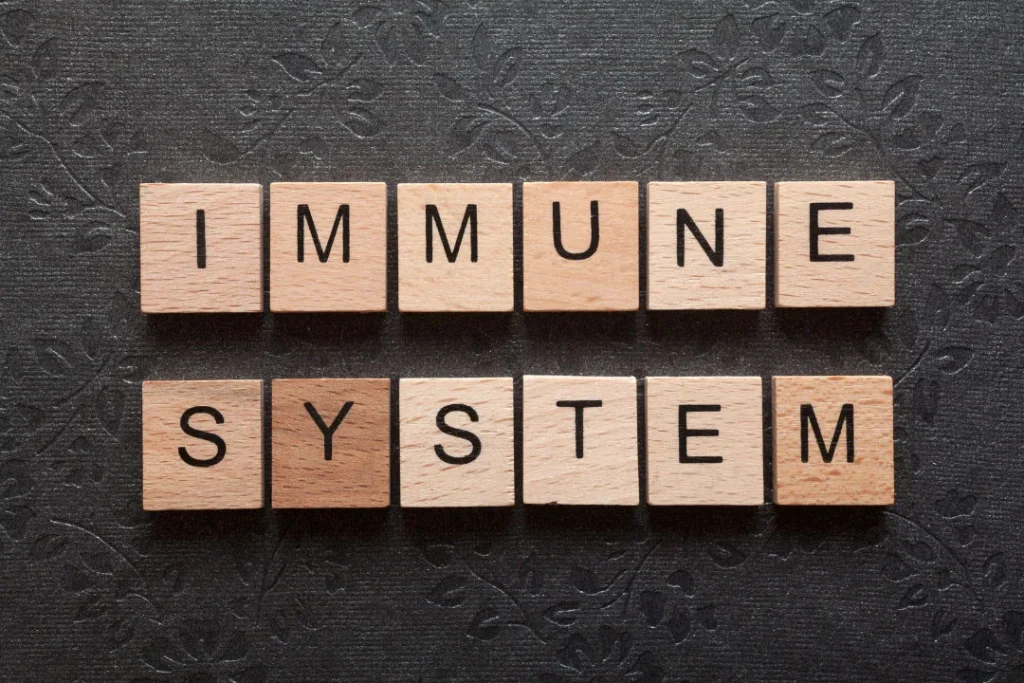A special biochemical compound called genistein combined polysaccharide (GCP) is mostly synthesized from the soy plant. The substance combines polysaccharides known for their immunomodulatory and anti-inflammatory capabilities with genistein, an isoflavone notable for its wide biological activities and present in many plant sources.
The potential health advantages of GCP, including its function in the prevention of different malignancies, immune system regulation, and diabetic control, are supported by a growing body of research. The goal of this page is to present a thorough analysis of the science underlying GCP, covering its chemistry, health advantages, ideal dose, negative side effects, probable drug interactions, and the most ethical ways to utilize this dietary supplement.
You May Also Like:
Sunmed CBD vs. Partnered Process CBD: Finding the Best CBD for Sleep
What is Non Restorative Sleep? Here are 5 Great Ways to Get Quality Rest Every Night
Genistein Combined Polysaccharide: Benefits, Dosage, Side Effects, Drug Interactions, and Other Important Information is an original (NootropicsPlanet) article.
Nature of Genistein Combined Polysaccharide
Genistein Combined Polysaccharide (GCP) is a dietary supplement made from soy products that have been extracted and enzyme-modified. Genistein, an isoflavone that occurs naturally in many plants, including soybeans, and polysaccharides—large carbohydrate molecules that are likewise widely distributed in many plant sources—combine to form this special substance.
Genistein is a form of bioactive phytoestrogen, a substance obtained from plants that has actions similar to those of estrogen. Genistein can bind to estrogen receptors and modify their signaling because of its structural resemblance to 17–estradiol, the main female sex hormone. This characteristic adds to the vast range of possible health advantages of genistein, including its antioxidant and cancer-preventive capabilities.
The polysaccharides found in GCP are complex carbohydrates made up of a number of linked sugar units. Although they can come from other sources as well, the polysaccharides in GCP frequently come from the soy plant. Due to their interactions with diverse immune system components, these polysaccharides are essential in enhancing the body’s immunological response.
GCP, a substance with established potential health advantages including cancer prevention, immunological modulation, and enhanced glycemic management, is created when genistein and polysaccharides are combined. GCP is frequently offered as an oral dietary supplement in the form of capsules or powder. It is significant to note that the enzymatic treatment of soybeans used in the formulation of GCP raises genistein’s bioavailability, improving the absorption of the compound.
Health Benefits of Genistein
The potential involvement of GCP in the prevention and treatment of cancer, particularly prostate and breast cancers, is one of the most important areas of research in this field. Genistein decreases tumor size and proliferation by preventing the development of cancer cells and inducing apoptosis. Additionally, genistein has the ability to stop the cell cycle, which stops lymphoid cancer cells from proliferating quickly.
GCP is showing promise in the treatment of diabetes in addition to its potential in cancer therapy. Genistein can help with type 2 diabetes treatment since it enhances insulin sensitivity and reduces blood glucose levels.
Furthermore, the polysaccharides component of GCP contributes to its strong immunomodulatory effect. This action can be used to treat autoimmune conditions and improve the immune system’s defense against infections.

Chemistry of Genistein
Chemically, genistein belongs to the isoflavone family of flavonoids and has a phenolic structure that allows it to influence a variety of cellular functions. The substance’s bioactivity results from its capacity to interact with a number of important cellular targets, including steroid hormone receptors, growth factor receptors, and enzymes controlling cellular signal transduction. Furthermore, genistein is a strong antioxidant that has the ability to scavenge dangerous free radicals that may otherwise destroy cells and advance the development of diseases.
Mechanism of Action of Genistein
In contrast, the polysaccharides in GCP, which are primarily derived from soy, are long molecules of carbohydrate with variable degrees of branching. Numerous bioactivities involving polysaccharides, notably immunomodulation, are well-known. These interactions with immune cells, the modification of cell signaling pathways, and the influence on the generation of different immune cytokines all contribute to this.
In GCP, genistein and polysaccharides work in concert to create a positive outcome. The immunomodulatory effects of polysaccharides combined with the antioxidant and anti-inflammatory characteristics of genistein lead to increased therapeutic potential.
Genistein Combined Polysaccharide: Benefits, Dosage, Side Effects, Drug Interactions, and Other Important Information is the (NootropicsPlanet) report.

Optimal Dosage of Genistein
Despite the fact that GCP has typically been demonstrated to be safe in clinical studies, the ideal dose may change according on the patient and the intended therapeutic aim. Studies recommend a daily dosage of 300–600 mg of GCP for cancer prevention, while 20-80 mg per day may be enough for diabetic control and as a lighter means of preventing breast cancer and prostate cancer.
However, these dosages need to be customized and utilized under a doctor’s supervision.
Side Effects of Genistein
Most people tolerate GCP well, and it has an excellent safety profile. There have been reports of mild adverse effects, such as diarrhea or stomach pain. Allergic responses might happen on occasion.

Potential Substance Interactions of Genistein
There are a few potential interactions that occur with genistein. It may lessen the efficiency of some chemotherapy medications by blocking specific drug-metabolizing enzymes. Additionally, the estrogenic action of genistein may conflict with hormonal treatments. Therefore, before beginning GCP supplementation, you ought to check with your healthcare practitioner before starting any doses.
Best Responsible Use of Genistein
GCP is a powerful dietary supplement that may have a role in the control of diabetes, the immune system, and the prevention of prostate cancer, among other health advantages. Like any supplement, it should be used sensibly and in accordance with the advice of a healthcare professional. The mechanisms of action should be clarified more, dosage recommendations should be improved, and interactions should be looked at in future study. With more research, GCP could have a significant role in maintaining health and avoiding illness.
Genistein Combined Polysaccharide:
Conclusion
Genistein Combined Polysaccharide (GCP) holds immense promise as a dietary supplement with a wide range of potential health benefits. Comprising genistein, an isoflavone known for its anti-cancer and antioxidant properties, combined with polysaccharides, renowned for their immunomodulatory effects, GCP offers a powerful combination of therapeutic applications.
Although a lot is still unknown about the true efficacy of genistein, research suggests GCP may play a crucial role in cancer prevention, immune system regulation, and diabetic control.
But because there are so many unknowns about it, it should be used with abundant caution under the guidance of a healthcare professional.

References:
- Genistein, Principal Proposed Uses . Retrieved from: https://www.ebsco.com/research-starters/health-and-medicine/genisteins-therapeutic-uses
- Genistein Combined Polysaccharide (GCP) Can Inhibit Intracrine Androgen Synthesis in Prostate Cancer Cells.link:https://www.ncbi.nlm.nih.gov/pmc/articles/PMC7460199/
- GCP, a genistein-rich compound, inhibits proliferation and induces apoptosis in lymphoma cell lines.link:https://www.sciencedirect.com/science/article/abs/pii/S0145212609001490
Important Note: The information contained in this article (Genistein Combined Polysaccharide: Benefits, Dosage, Side Effects, Drug Interactions, and Other Important Information) is for general informational purposes only, and should not be construed as health or medical advice, nor is it intended to diagnose, prevent, treat, or cure any disease or health condition. Before embarking on any diet, fitness regimen, or program of nutritional supplementation, it is advisable to consult your healthcare professional in order to determine its safety and probable efficacy in terms of your individual state of health.
Regarding Nutritional Supplements Or Other Non-Prescription Health Products: If any nutritional supplements or other non-prescription health products are mentioned in the foregoing article, any claims or statements made about them have not been evaluated by the U.S. Food and Drug Administration, and such nutritional supplements or other health products are not intended to diagnose, treat, cure, or prevent any disease.


